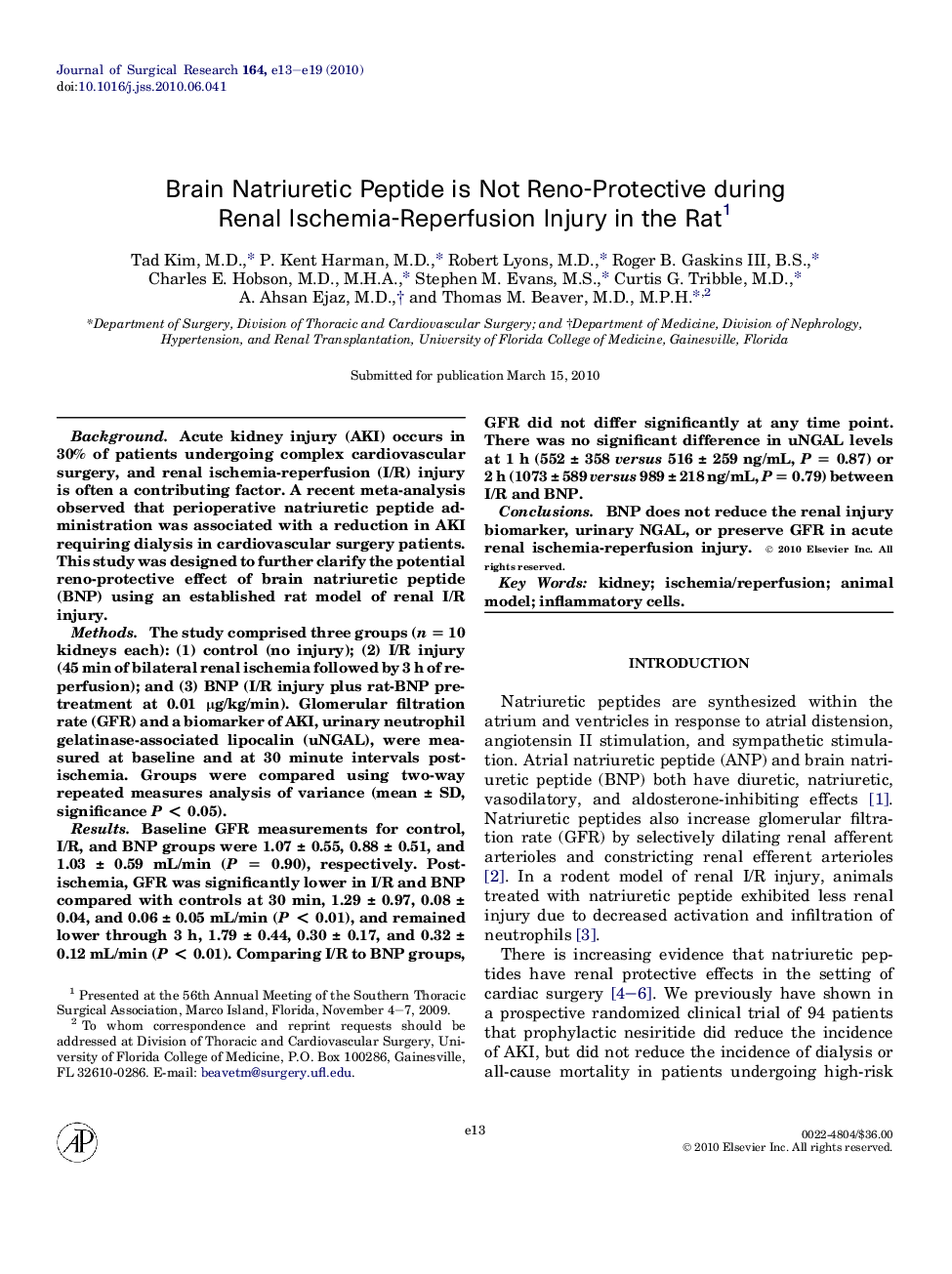| Article ID | Journal | Published Year | Pages | File Type |
|---|---|---|---|---|
| 4302588 | Journal of Surgical Research | 2010 | 7 Pages |
BackgroundAcute kidney injury (AKI) occurs in 30% of patients undergoing complex cardiovascular surgery, and renal ischemia-reperfusion (I/R) injury is often a contributing factor. A recent meta-analysis observed that perioperative natriuretic peptide administration was associated with a reduction in AKI requiring dialysis in cardiovascular surgery patients. This study was designed to further clarify the potential reno-protective effect of brain natriuretic peptide (BNP) using an established rat model of renal I/R injury.MethodsThe study comprised three groups (n = 10 kidneys each): (1) control (no injury); (2) I/R injury (45 min of bilateral renal ischemia followed by 3 h of reperfusion); and (3) BNP (I/R injury plus rat-BNP pretreatment at 0.01 μg/kg/min). Glomerular filtration rate (GFR) and a biomarker of AKI, urinary neutrophil gelatinase-associated lipocalin (uNGAL), were measured at baseline and at 30 minute intervals post-ischemia. Groups were compared using two-way repeated measures analysis of variance (mean ± SD, significance P < 0.05).ResultsBaseline GFR measurements for control, I/R, and BNP groups were 1.07 ± 0.55, 0.88 ± 0.51, and 1.03 ± 0.59 mL/min (P = 0.90), respectively. Post-ischemia, GFR was significantly lower in I/R and BNP compared with controls at 30 min, 1.29 ± 0.97, 0.08 ± 0.04, and 0.06 ± 0.05 mL/min (P < 0.01), and remained lower through 3 h, 1.79 ± 0.44, 0.30 ± 0.17, and 0.32 ± 0.12 mL/min (P < 0.01). Comparing I/R to BNP groups, GFR did not differ significantly at any time point. There was no significant difference in uNGAL levels at 1 h (552 ± 358 versus 516 ± 259 ng/mL, P = 0.87) or 2 h (1073 ± 589 versus 989 ± 218 ng/mL, P = 0.79) between I/R and BNP.ConclusionsBNP does not reduce the renal injury biomarker, urinary NGAL, or preserve GFR in acute renal ischemia-reperfusion injury.
